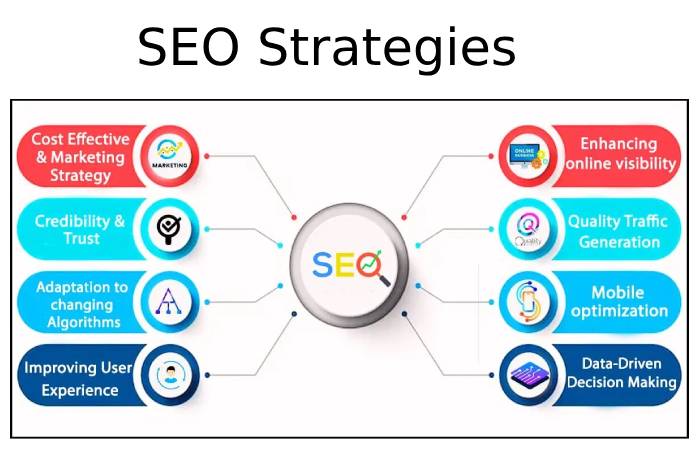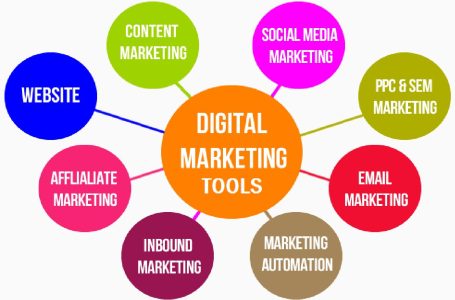Introduction to SEO Strategies
In today’s fast-paced digital world, organizations and individuals need more online presence than ever. One of the most effective tools for achieving this is Search Engine Optimization (SEO). Companies that employ well-thought-out San Francisco SEO services may drastically increase their exposure in search engine results and reach a larger audience. SEO goes beyond just boosting traffic; it’s about drawing in the right audience(genuinely interested in your products or services), leading to higher sales and stronger brand loyalty.
SEO encompasses techniques for enhancing your website’s visibility on search engine results pages (SERPs). The primary goal is to improve organic traffic by attracting people to your site through unpaid search results. Unlike paid advertising, which can be costly, effective SEO provides a sustainable way to build your digital presence and grow your audience over time.
Understanding Keywords and Their Importance

Keywords are at the very heart of SEO. People use search terms and phrases for online information, products, or services. Proper keyword research is critical because it allows you to determine your target audience’s phrases. By identifying these search phrases, you may tailor your content to consumers’ requirements, improving the likelihood of appearing in their search results.
Choosing the correct keywords ensures your website’s content is relevant to visitors’ searches. This alignment can increase visibility and higher engagement rates, as users are more likely to find and interact with content that meets their expectations. Keyword research involves analysis and modification to keep up with shifting trends and user behavior.
Content is King: Creating Quality Material
An essential component of successful SEO is high-quality content. Search engines prefer websites with useful, pertinent, and interesting material. If people find your helpful material, they will stay on your site longer, spread your information, and return for more. Search engines get favorable signals from this conduct, suggesting the value and authority of your website.
Diversifying your content formats can help capture a wider audience. Blogs provide an excellent platform for in-depth discussions, while videos can simplify complex topics and enhance understanding. Infographics can visually represent data and ideas, making them more accessible and engaging for users. By offering various types of content, you can address different learning preferences and keep your audience engaged.
On-Page SEO Techniques
On-page SEO is optimizing individual web pages to raise their exposure and ranks on search engines. Key elements contribute to this process, including title tags, meta descriptions, and header tags. Adequately formatted title tags and meta descriptions can captivate searchers’ attention and improve click-through rates.
Structured URLs are another vital factor. A well-crafted URL clarifies the content’s context for search engines and enhances user experience by indicating what the page contains. Image optimization is equally important. It makes content more accessible and can improve load times, improving overall user experience. Internal linking encourages users to discover more material by guiding them across your website.
The Role of Off-Page SEO
Off-page SEO focuses on activities outside your website to influence its rankings within SERPs. A critical off-page strategy is building high-quality backlinks that refer to your material from other trustworthy websites. Backlinks serve as endorsements of your website’s legitimacy.
Effective link-building involves earning backlinks from authoritative and relevant sites, as discussed by SEO experts. This process can improve your site’s authority and trustworthiness, increasing search engine rankings. Off-page SEO also includes social media engagement, brand mentions, and influencer partnerships, which can enhance your online reputation.
Mobile Optimization for Better Reach
Mobile optimization is crucial as more people use smartphones and tablets to access the internet. Any SEO plan must include a mobile-friendly website, which may improve user experience, reduce bounce rates, and increase conversions.
By making your design responsive, you can guarantee that it can easily adjust to various screen sizes and devices. Slow-loading pages can irritate consumers and increase bounce rates, so optimizing load times is also imperative. Google’s mobile-first indexing, which uses the mobile version of your website for ranking considerations, highlights the significance of mobile optimization.
Leveraging Analytics for Continuous Improvement
Analytics tools supply valuable data that can inform your SEO approach. Tools like Google Analytics help you monitor website traffic, identify top-performing keywords, and analyze user behavior patterns. By examining this data, you can strategically improve your site’s performance.
SEO requires regular monitoring and adaptation based on the information gathered from analytics. Ongoing optimization keeps your strategy effective and adaptable to evolving search algorithms and consumer trends.
Future Trends in SEO
The SEO landscape is continuously evolving, driven by rapid advancements in technology and shifting user behaviors that shape the methods we use to optimize for search engines. Maintaining a competitive advantage in this industry requires keeping up with new trends, such as voice search optimization and artificial intelligence (AI).
As the usage of voice-activated devices like smart speakers and virtual assistants increases, optimizing content for voice search becomes crucial. It involves rethinking our keyword strategies, focusing on natural language and conversational phrases that users are likely to speak rather than type. Additionally, ensuring that local SEO practices are in place can significantly enhance visibility for businesses that cater to nearby customers, as voice searches often seek immediate, location-based results.
Artificial intelligence is also increasingly significant in search engine algorithms and content ranking. AI technologies like Google’ sank Brain analyze user intent and content relevance more deeply than ever. To adapt to these changes, SEO professionals must employ data-driven strategies that include keyword analysis, content quality assessments, and user engagement metrics. Producing valuable, high-quality material that responds to users’ inquiries will satisfy AI-driven algorithms and improve the user experience.
By understanding these emerging trends, continuously analyzing their impact on search behavior, and adapting strategies accordingly, businesses can sustain long-term success and confidently navigate the complexities of the ever-changing digital environment.





